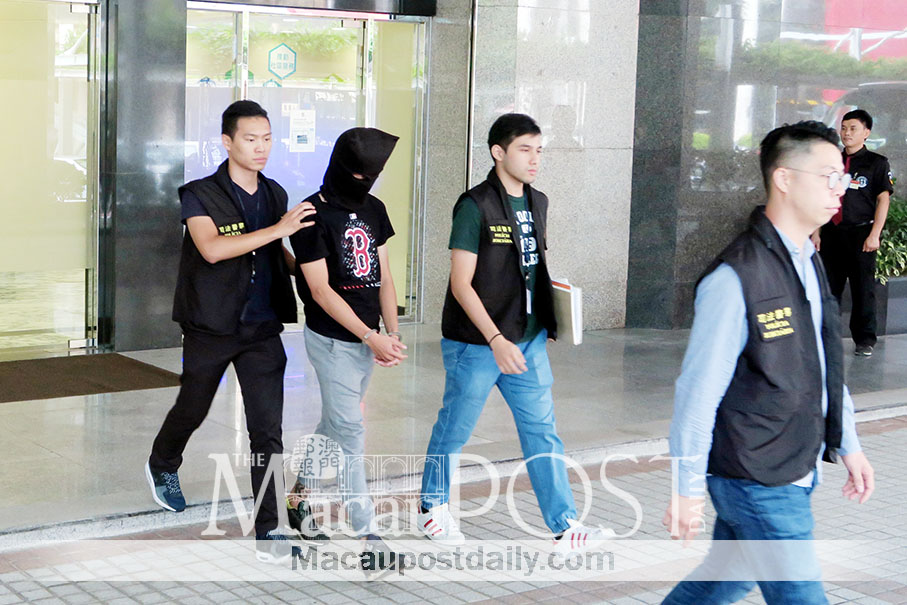Lawmaker-cum-restaurateur Andrew Chan Chak Mo, who chairs the Legislative Assembly’s 2nd Standing Committee, said yesterday that the future operations of the city’s so-called “satellite casinos” continued to be the committee members’ focus during yesterday’s committee meeting – which was the second one after the outline of the government’s gaming industry amendment bill was passed during a plenary session last month.
The committee’s first meeting on the government-drafted bill was held on Monday.
Briefing reporters during a press conference after the committee’s closed-door meeting, Chan reaffirmed that “all questions” about satellite casinos have been raised by the committee members during the two meetings, which will be answered by government officials in a meeting expected to be held early next month, after the committee members’ review of the bill in several more meetings without officials attending this and next week.
Chan underlined that the committee has been constantly collecting opinions from various sectors of civil society about the bill. According to Chan, the committee has so far received comments from one of Macau’s six gaming operators and one resident. The concessionaire, which Chan did not identify, has commented on how certain rules in the bill will be enforced, such as casino operators’ shares, listing status, reviews of shareholders’ eligibility, and the issue of joint and several liability, while the resident has commented that he or she agrees with the government’s tighter controls on the gaming industry.
According to the LexisNexis website, the purpose of a joint and several, or several, liability clause is to make clear whether the parties have a joint obligation or have individual promises to perform acts or obligations.
Concerning the satellite casino issue, Chan said that during yesterday’s meeting, the committee members raised concerns over the impact of the possible closure of satellite casinos on the affected hotels’ operations and the employment of casino workers.
The bill proposes that all casinos must be situated in real estate owned by the concessionaires. The bill proposes that gaming operators’ so-called “satellite casinos” housed in buildings that they don’t own will be given a transition period of three years to regularise their situation, provided that their operators are among the winners of the upcoming bidding process.
According to Chan, some of the committee members questioned whether the proposed three-year transition period will be sufficient for the future – up to six – concessionaires to regularise the satellite casino issue.
Committee members also asked whether future concessionaires would employ the staff members of satellite casinos after their closures, Chan said.
According to Chan, some committee members also asked whether several satellite casinos would be allowed to collectively bid for a single gaming concession in the future.
The government has noted that according to the bill, junket operators, officially known as “gaming promoters”, must be registered as a company, Chan noted.
Currently, junket operators can either operate as a company or an individual.
According to Chan, committee members asked the government to clarify whether the gaming promotion business can be run by companies formed by individuals in the future.
Junkets are intermediaries between casino operators and high-rolling gamblers. Customarily, junkets in Macau also run so-called VIP rooms for high-stakes gamblers on behalf of local casino operators.
Junkets are licensed annually by the Gaming Inspection and Coordination Bureau (DICJ), the government’s regulator of the sector.
After the standing committee finishes its review of the bill, the latter will be submitted to its second reading during a plenary session for its final debate and article-by-article vote. The bill will then have to be gazetted to become law.
Chan said on Monday that he expected the final version of the bill to be voted on by the legislature by June 26, when Macau’s three gaming concessions and three sub-concessions are scheduled to expire.
Lawmaker-cum-restaurateur Andrew Chan Chak Mo (right), who chairs the legislature’s 2nd Standing Committee, talks to reporters after the committee’s closed-door meeting yesterday reviewing the government’s gaming amendment bill, while the committee’s secretary, Lam Lon Wai, looks on. Photo: Ginnie Liang







